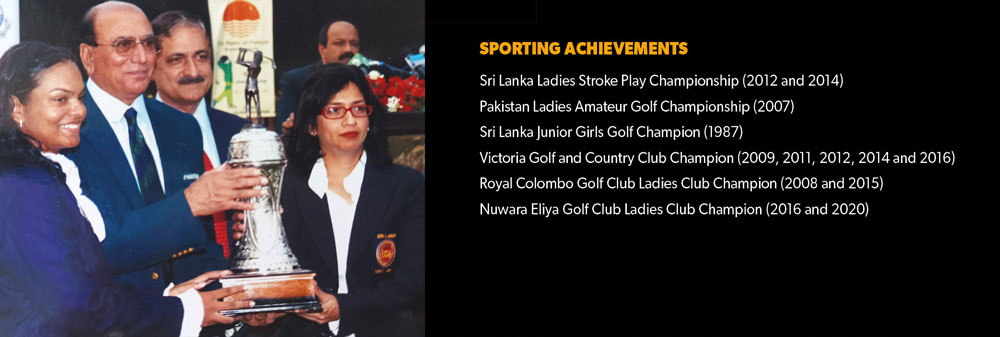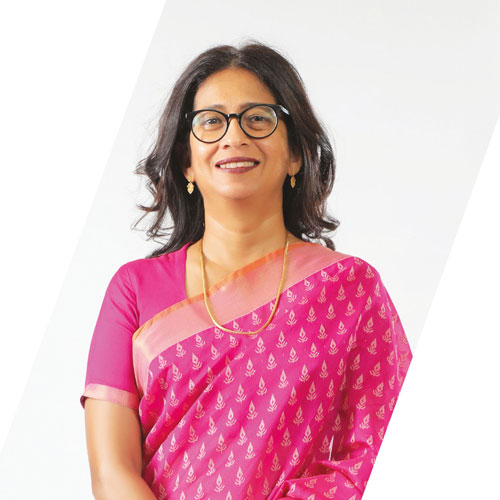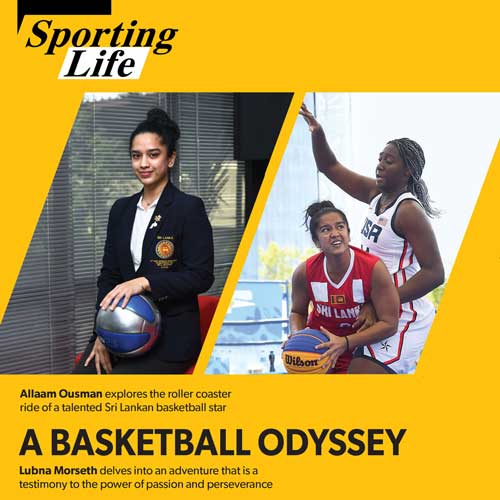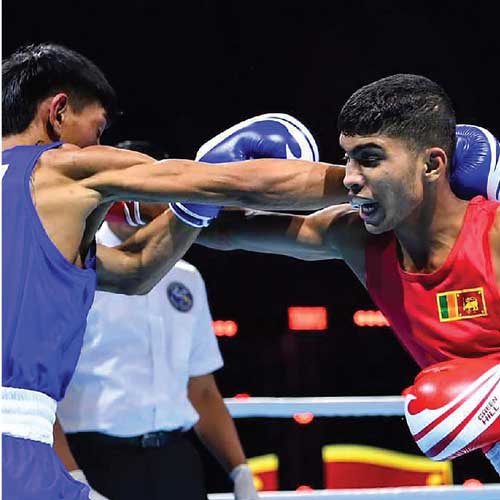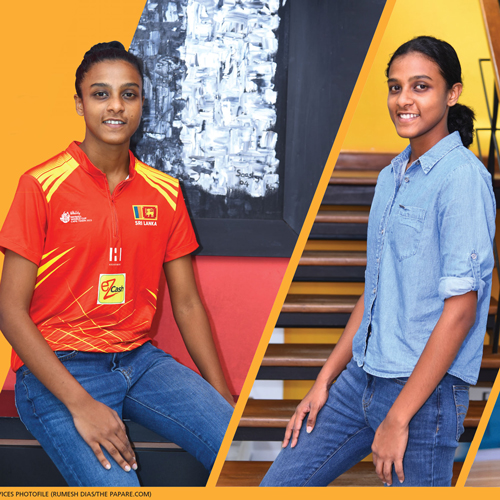THE SPIRIT OF SPORT
Niloo Jayatilake expounds on the skills she leverages in the corporate world – Allaam Ousman has more
One of the most important lessons golfer Niloo Jayatilake learnt from a young age was multitasking. She says: “We never stopped sports for exams. Even today, when I conduct interviews, I always check whether the people we’re hiring are able to multitask.”
Niloo is the CEO and a director of Softlogic Asset Management.
Following in the footsteps of her father, Jayatilake began playing golf at the age of 14 and enjoyed success. But it was not winning that steeled her to face the challenges in life: “You learn more when you fail or lose a game than when you win. That has taught me to fight and work harder in the corporate world when things are working against me.”
As an investment analyst, she has experienced the impact of global events on Sri Lanka: “When the East Asian crisis hit in 1997, we had foreign funds that were selling out of Sri Lanka and our stock market crashed. We experienced market fluctuations during the civil war. And lately, it’s been the pandemic, the country’s sovereign default and the economic crisis last year.”

“But that spirit of sport makes you come back harder and stronger,” she notes, adding: “If you set yourself a target, you believe that you can achieve it no matter what. That’s why we want to inculcate these values in the children who take up sport.”
Jayatilake shoots down the notion that golf is an elitist sport: “It’s perceived as such; but it isn’t.
The players who have excelled in the sport such as Nandasena Perera and Anura Rohana (both were silver medallists at the Asian Games) were not from elitist backgrounds. And they brought great honour to the country.”
She continues: “They were an inspiration and icons for us. If you ask me who the greatest sportsperson in Sri Lanka was, I would say Nandasena Perera. He did not come from the privileged class but conquered Asia. No Sri Lankan has been able to do that since.”
Jayatilake also admires Tiru Fernando, the only Sri Lankan lady professional golfer; and Thuhashini Selvaratnam, who has won several national titles in the Asian region.
She explains: “Golf is all about mental strength – it’s also an individual sport. You play against yourself and the golf course rather than other golfers. Furthermore, it can be enjoyed at any age.”
Niloo’s passion for golf has led her to make an impact as a sports administrator. She is presently the Chairperson of the Junior Golf Development Subcommittee and a Council Member of Sri Lanka Golf, the governing body for the sport.
“We initiated a major campaign to scout for young talent throughout the island – especially at the grassroots level. And we have now introduced the sport in Anuradhapura, Hambantota, Kandy and Nuwara Eliya. The results have been rewarding and we’re seeing great young talent in these areas,” she says.
As a Vice President of the National Olympic Committee of Sri Lanka (NOCSL), she played a leading role in advocating for gender equity and promoting safe sports in Sri Lanka. Jayatilake was instrumental in developing the Safe Sport policy in the country with the support of NOCSL President Suresh Subramaniam and attorney-at-law Jivan Goonetilleke.
The ‘Sexual Harassment and Abuse policy’ was introduced for the first time in Sri Lanka by NOCSL in 2019. Interestingly and following widespread media criticism for using the words ‘Harassment is No Game’ (which are apparently taboo in our society), it had to be renamed as the ‘Safe Sports’ policy.
Jayatilake is eager to spread awareness of the policy to prevent any form of harassment in sport: “It took decades for athletes to come out into the open when they faced unsafe situations. It’s our duty as former athletes to see that these things are done for our future athletes.”
Pointing out that it’s women (Tharushi Karunarathna and Dilhani Lekamge) who have won medals at the Asian Games, she wants them to be given more opportunities. “We are not harnessing sufficient talent. And we want girls to come and play any kind of sport and make it a fashion among them,” she concludes.
